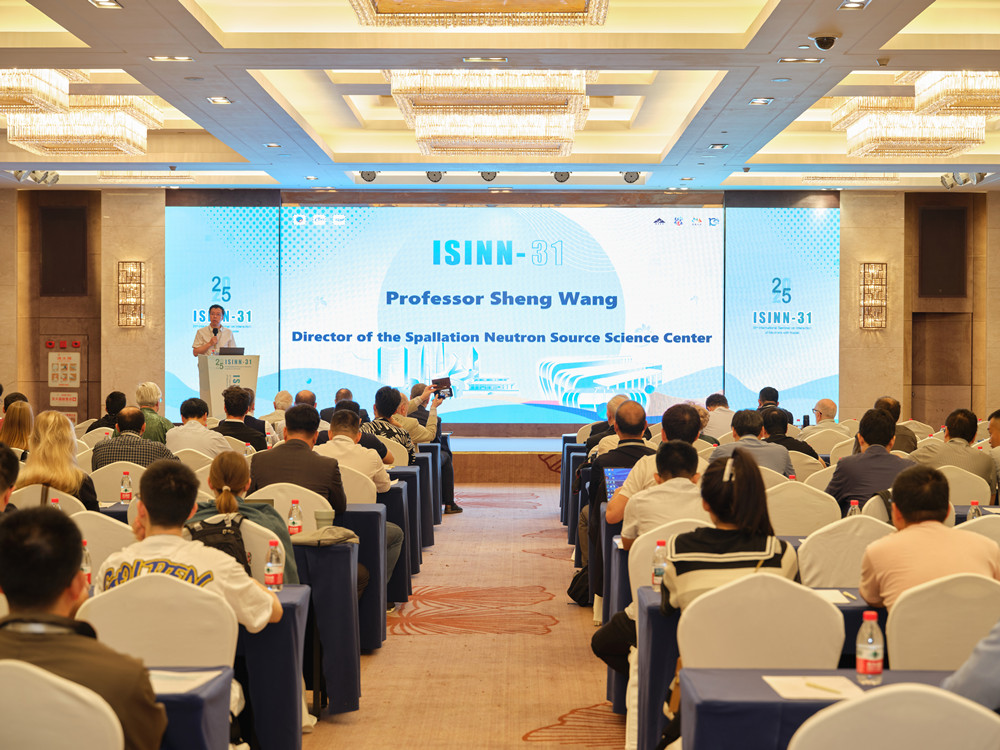On May 26, the 31st International Seminar on Interaction of Neutrons with Nuclei (ISINN) commenced in Dongguan, Guangdong, bringing together nearly 300 experts from over 50 research institutions worldwide for a five-day conference to discuss the latest advancements and future trends in neutron science. The opening ceremony featured speeches by Wang Sheng, Deputy Director of the Institute of High Energy Physics (IHEP), and Egor Lychagin, Director of the Frank Laboratory of Neutron Physics at the Joint Institute for Nuclear Research (JINR) in Dubna.
ISINN, initiated in 1993 by the Frank Laboratory of Neutron Physics, is a premier international academic conference in neutron research. It serves as a platform for exchanging ideas on neutron-nucleus interactions, reviewing global progress in neutron science, and fostering collaboration to advance the field.
This year’s conference attracted participants from China, Russia, the U.S., Spain, Japan, and other countries, with 100 international attendees. Over 160 academic presentations covered topics ranging from fundamental neutron properties, nuclear reactions, and fission physics to advanced neutron sources, detection technologies, and radiation effects. As neutron science continues to evolve, breakthroughs in both basic research and applied technologies—such as nuclear energy innovation—are providing critical support for societal progress.
In his address, Wang Sheng highlighted China’s significant advancements in neutron science, particularly since the completion of CSNS, the country’s first pulsed spallation neutron source. "CSNS has become a cornerstone for research, application, and talent development," he noted. "With 13 successful user cycles and over 5,000 operational hours annually, its uptime and efficiency rank among the best globally, enabling transformative work in materials science, life sciences, and new energy technologies."
Egor Lychagin emphasized that hosting ISINN in China has deepened the global scientific community’s understanding of China’s contributions to neutron and nuclear science. "This conference bridges disciplines and borders, sparking new collaborations and injecting fresh momentum into neutron-nucleus research," he said.
Shi Quanlin underscored the rapid growth of neutron science in China, where both fundamental studies and engineering applications are flourishing. "Since 2018, our laboratory has worked to bring ISINN to China, creating a stage for domestic researchers to showcase their work and a window into global neutron science. We hope this platform will foster dialogue on cutting-edge physics, facility synergies, and cross-disciplinary applications."
Academician Zhang Huanqiao, reflecting on his 60-year career in nuclear physics, expressed pride in China’s scientific rise and the power of international cooperation. "This seminar is a testament to our shared mission: tackling complex challenges in nuclear science and expanding the frontiers of knowledge together."




